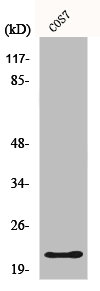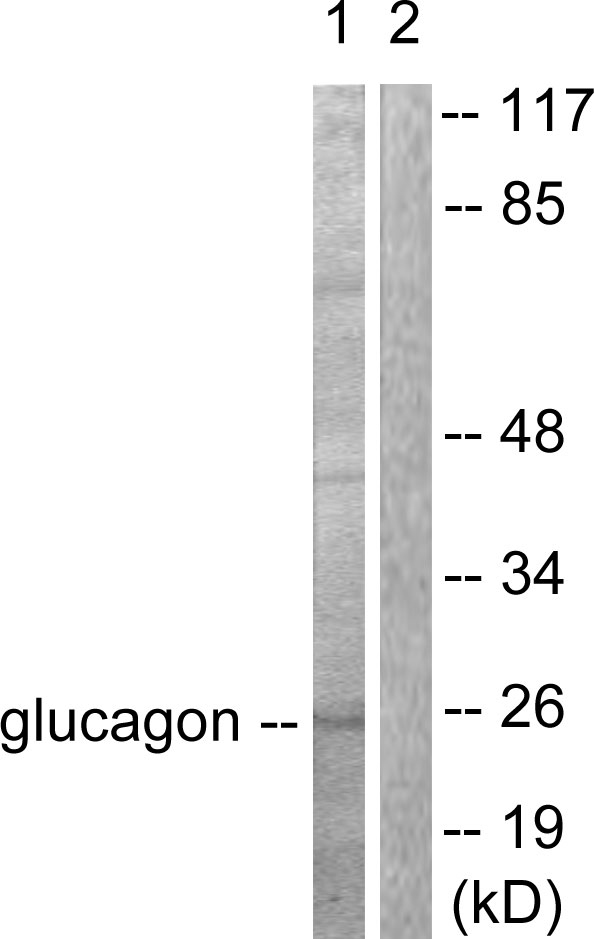Glucagon antibody [K79bB10]
GTX10988
ApplicationsDot Blot, ImmunoFluorescence, ImmunoCytoChemistry, ImmunoHistoChemistry, ImmunoHistoChemistry Paraffin, RadioImmunoAssay
Product group Antibodies
ReactivityCanine, Feline, Guinea Pig, Human, Mouse, Porcine, Rabbit, Rat
TargetGCG
Overview
- SupplierGeneTex
- Product NameGlucagon antibody [K79bB10]
- Delivery Days Customer7
- Application Supplier NoteIHC-P: 1:2,000. *Optimal dilutions/concentrations should be determined by the researcher.Not tested in other applications.
- ApplicationsDot Blot, ImmunoFluorescence, ImmunoCytoChemistry, ImmunoHistoChemistry, ImmunoHistoChemistry Paraffin, RadioImmunoAssay
- CertificationResearch Use Only
- ClonalityMonoclonal
- Clone IDK79bB10
- ConjugateUnconjugated
- Gene ID2641
- Target nameGCG
- Target descriptionglucagon
- Target synonymsGLP-1, GLP1, GLP2, GRPP, pro-glucagon, glicentin-related polypeptide, glucagon-like peptide 1, glucagon-like peptide 2, incretin, preproglucagon
- HostMouse
- IsotypeIgG1
- Protein IDP01275
- Protein NamePro-glucagon
- Scientific DescriptionGlucagon is a 29-residue polypeptide hormone (MW 3482), produced in the pancreas. A related hormone, enteroglucagon (or oxyntomodulin), which is produced in the mucosa of the small and large intestine, consists of the 29 amino acid sequence of pancreatic glucagon extended by 8 additional residues at the C-terminus. The biological activities of pancreatic glucagon include glycogenolysis, lipolysis, gluconeogenesis, and ketogenesis, which are antagonistic effects to those of insulin action, thus leading to increased blood glucose levels. Immunocytochemical studies have revealed the presence of pancreatic glucagon inside the A or alpha cells, which constitute 15-20% of the islet cell population. These cells are located preferentially at the periphery of the human pancreatic islets. Pathological manifestations of the glucagon-type peptide reside almost exclusively with the existence of tumors or glucagonomas, as no states of glucagon-cell deficiency or hyperplasia have been identified. Glucagon-specific antibodies would prove useful as an cell and tumor markers applying immunohistochemical techniques, and as an analytical tool in quantification of the hormone.
- ReactivityCanine, Feline, Guinea Pig, Human, Mouse, Porcine, Rabbit, Rat
- Storage Instruction-20°C or -80°C,2°C to 8°C
- UNSPSC41116161
References
- Hes3 is expressed in the adult pancreatic islet and regulates gene expression, cell growth, and insulin release. Masjkur J et al., 2014 Dec 19, J Biol ChemRead this paper
- Somatostatin receptor type 2 antagonism improves glucagon counterregulation in biobreeding diabetic rats. Karimian N et al., 2013 Aug, DiabetesRead this paper






